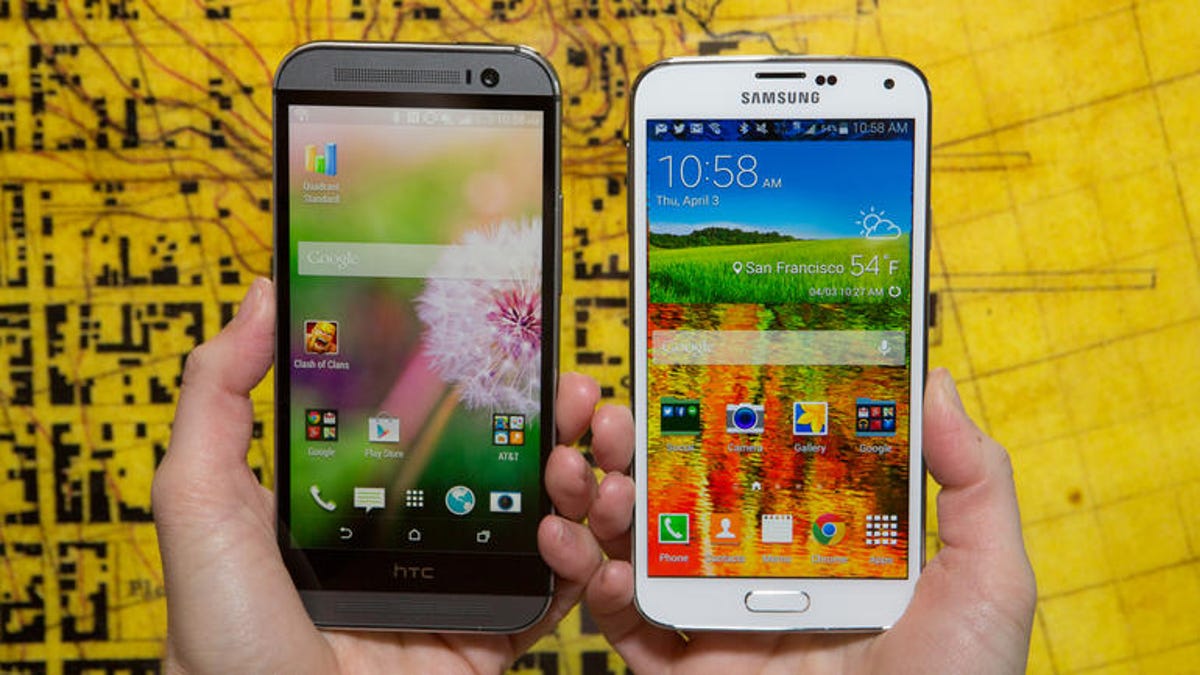US carriers, you'll have to unlock those phones
Starting now, it will be much easier for people to jump from one carrier to another and take their smartphone with them.

The days of carriers locking down devices to keep customers in place are officially dead.
Starting now, all US carriers must comply with requests from postpaid and prepaid customers to unlock their devices, as long as certain parameters are met. The industry group CTIA had committed last year to have all wireless carriers adhering to the regulation by February 11, 2015.
The move follows from President Obama last year signing into law the " Unlocking Consumer Choice and Wireless Competition Act," which overruled a controversial 2012 decision by the Library of Congress.
The debate over phone unlocking has come a long way in just a few short years. Unlocking a phone allows owners to put the device on whatever carrier network they choose. For years, carriers have locked down devices, allowing them only to connect to their own networks. The move was designed to keep customers close and not see them stray to other carriers.
"We are pleased the FCC acknowledged the participating wireless carriers met the deadlines to unlock their customers' devices per the Consumer Code for Wireless Service," said Scott Bergmann, the CTIA's vice president for regulatory affairs, in a statement. "We also remind consumers that an unlocked device does not necessarily mean an interoperable one since different carriers use different technologies and spectrum bands."
For customers, the inability to unlock handsets had been a nuisance. Many consumers, seeking better network coverage or data plan pricing, have wanted to be able to move to a different network without having to buy a new device. An unlocked handset would allow that interchange between, say, AT&T and T-Mobile networks. Locked devices force customers to stick with their carrier networks and if they decide to switch, to buy a new device on the other carrier.
In 2013, the issue of unlocking hitting a tipping point when the Libary of Congress held that the US Digital Millennium Copyright Act (DMCA) banned American consumers from unlocking their devices without the consent of their carriers. Critics took issue with the ruling, which actually came down in 2012 but went into effect in 2013. Then in August 2014 came the "Unlocking Consumer Choice and Wireless Competition Act," which effectively made unlocking legal again.
Under the CTIA's Consumer Code for Wireless Service that went into effect Wednesday, carriers will have no choice but to remove locks on devices owned by both postpaid and prepaid wireless users.
On the postpaid side, carriers must unlock devices after a customer in good standing has fulfilled "postpaid service contract, device financing plan, or payment of applicable early termination fee." In other words, those subscribers who get smartphones for less by paying a subsidy at the beginning and paying in full over the life of a contract, must have satisfied that payment covenant before they can be allowed to unlock their device.
On the prepaid side, things are bit simpler: carriers must, upon request, unlock a handset "no later than one year after initial activation."
All unlocking, regardless of the type of customer, must be completed within two days of a request, and carriers are now required to inform consumers of their policies.
"Carriers that lock devices will clearly notify customers that their devices are eligible for unlocking at the time when their devices are eligible for unlocking or automatically unlock devices remotely when devices are eligible for unlocking, without additional fee," the code reads. "Carriers reserve the right to charge non-customers/non-former-customers with a reasonable fee for unlocking requests. Notice to prepaid customers may occur at point of sale, at the time of eligibility, or through a clear and concise statement of policy on the carrier's website."

